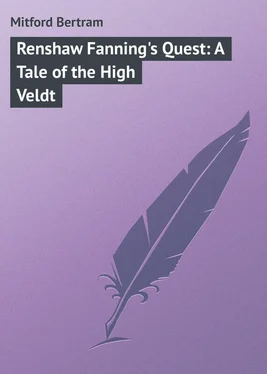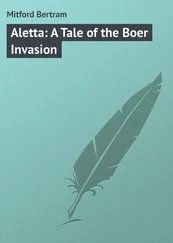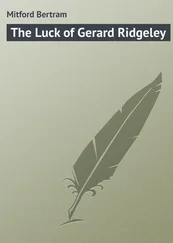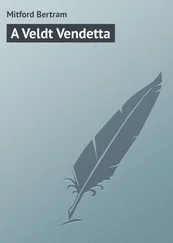Bertram Mitford - Renshaw Fanning's Quest - A Tale of the High Veldt
Здесь есть возможность читать онлайн «Bertram Mitford - Renshaw Fanning's Quest - A Tale of the High Veldt» — ознакомительный отрывок электронной книги совершенно бесплатно, а после прочтения отрывка купить полную версию. В некоторых случаях можно слушать аудио, скачать через торрент в формате fb2 и присутствует краткое содержание. Издательство: Иностранный паблик, Жанр: foreign_prose, на английском языке. Описание произведения, (предисловие) а так же отзывы посетителей доступны на портале библиотеки ЛибКат.
- Название:Renshaw Fanning's Quest: A Tale of the High Veldt
- Автор:
- Издательство:Иностранный паблик
- Жанр:
- Год:неизвестен
- ISBN:нет данных
- Рейтинг книги:5 / 5. Голосов: 1
-
Избранное:Добавить в избранное
- Отзывы:
-
Ваша оценка:
- 100
- 1
- 2
- 3
- 4
- 5
Renshaw Fanning's Quest: A Tale of the High Veldt: краткое содержание, описание и аннотация
Предлагаем к чтению аннотацию, описание, краткое содержание или предисловие (зависит от того, что написал сам автор книги «Renshaw Fanning's Quest: A Tale of the High Veldt»). Если вы не нашли необходимую информацию о книге — напишите в комментариях, мы постараемся отыскать её.
Renshaw Fanning's Quest: A Tale of the High Veldt — читать онлайн ознакомительный отрывок
Ниже представлен текст книги, разбитый по страницам. Система сохранения места последней прочитанной страницы, позволяет с удобством читать онлайн бесплатно книгу «Renshaw Fanning's Quest: A Tale of the High Veldt», без необходимости каждый раз заново искать на чём Вы остановились. Поставьте закладку, и сможете в любой момент перейти на страницу, на которой закончили чтение.
Интервал:
Закладка:
“Dirk,” said the latter, when the Koranna’s cheery congratulations were exhausted, “you keep the goats near, round the house to-day, so as to be within call – it wouldn’t make much difference if they stayed in the kraal for all the poor brutes find to eat in the veldt – however, I suppose they find something. What have you done with the stranger Baas’ horse?”
“He’s in the stable, Baas.”
“All right. See that he’s well fed – luckily we have plenty of mealies. And there are a few bundles of oat-hay left. Let him have them, Dirk.”
“Ja, Baas. That shall be done.”
“And tell Kaatje to see that the stranger Baas has everything he wants – as far as the resources of the establishment will permit,” added Renshaw in English, turning to his guest with a rueful smile. “I’ve been telling old Dirk to see that you have everything you want, so be sure you keep him up to the mark, and see that you get it. He can grind out a few words of English, and his wife a few more, so you’ll be able to make them understand. And now, if you’ll excuse me, I think I’ll lie quiet a little, for I’m feeling most confoundedly played out.”
“My dear fellow – certainly, certainly. I think you’ve been talking far too much already,” answered Sellon, effusively. “It’s awfully good of you to think about me, but don’t bother yourself on my account.”
His unfamiliarity with the Boer dialect – the habitual medium of speech between Cape colonists and natives – had left him necessarily ignorant of his host’s solicitude on his behalf, as conveyed in the foregoing instructions. Renshaw Fanning, lying there miserably ill, had no thought – uttered no word – on behalf of his own interests during those directions to his servant. All his anxiety was for the comfort and well-being of the stranger within his gates. It was only a part of that unselfishness which was characteristic of the man – which had become, in fact, second nature.
Presently he turned again to Sellon.
“I beg a thousand pardons,” he said. “How very thoughtless of me, but it never seems to have occurred to me all this time that you may have business of your own to attend to. If that is the case, even at the risk of appearing inhospitable, I beg you will not delay your journey here on my account. I shall be on my legs again in a day or two – one thing about this complaint, its attacks though sharp are frequently short – and apart from necessity it must be very tedious for you to feel yourself tied down in a rough and comfortless place such as this.”
“My dear fellow, don’t you bother yourself about me,” replied the other, decisively. “I’m going to see you through it before I move on. When a fellow’s ill in an out-of-the-way hole like this he wants a ‘man and a brother’ about him; and I’m going to stick to you like a leech until you’re yourself again. So don’t jaw any more, there’s a good chap, but just snooze off right away.”
In announcing this resolution the speaker was fully alive to what he had undertaken. It was the outcome of no mere passing impulse of generosity. And really, to make up one’s mind deliberately to dwell for an indefinite period in a very rough and uncomfortable tenement, in the midst of a burnt-up starving wilderness, destitute not only of the ordinary comforts of life, but almost of anything fit to eat or drink – this, too, alone with a perfect stranger in for a possibly long bout of severe fever – is something of an act of self-sacrifice, which we hope, virtuous reader, you will remember to set off against the man’s other failings and derelictions.
If circumstances had rendered Maurice Sellon a bit of a scamp – if a further combination of the same might conceivably render him a still greater one – yet he was, according to the definition of those who knew him, “not half a bad fellow in the main.” His resolution to see his newly found acquaintance through what would certainly prove a tedious if not a dangerous illness, was purely a generous one, dashed by no selfish motive. A subsequent idea, which flashed upon him like an inspiration, that even if the precious document relating to the mysterious treasure were lost beyond recovery, his newly made friend was almost sure to know its contents by heart, and might be brought to share the knowledge with him, was entirely an afterthought, and this we desire to emphasise. To slightly tamper with the proverb, “ Want of money is the root of all evil,” and Maurice Sellon, in common with many worthier persons, stood sorely and habitually in need of that essential article.
But scamp or no scamp, his presence there was a very fortunate thing for his fever-stricken host. By nightfall poor Renshaw had a relapse; and for three days he lay, alternatively shivering and burning – intermittently raving withal in all the horrors of acute delirium. Then the presence of a strong, cheery, resourceful fellow-countryman was almost as that of a very angel of succour; and even then nothing but a fine constitution, hardened by a life of activity and abstemiousness, availed to snatch the patient from the jaws of Death himself.
Chapter Seven.
“Our Object is the Same.”
“Do you know, Fanning, you gave me the very warmest reception hero I ever met with in my life?” said Sellon, one day, when his patient was fairly convalescent and able to talk freely.
Renshaw looked puzzled.
“It’s very good of you to say so,” he answered. “You know by this time what the resources of the place are – or, rather, are not. Still, you were warmly welcome, and – I can never thank you enough, Sellon, for the unselfish way in which you have stayed here doing the good Samaritan for a perfect stranger, I owe my life to you.”
The other burst into a shout of laughter.
“That’s not what I meant, old chap. Stop. I’ll explain. But, first of all, where are your guns?”
Surprised at the question, Renshaw opened the Chest where the firearms were usually kept. It was empty.
“Now, look behind that big box under the sofa,” said the other, with a laugh.
This was done, and lo! there were the missing weapons, carefully rolled in sacking. Choking with laughter over the recollection, Sellon proceeded to narrate the circumstances under which he had been made a target of, as we have seen.
“And I’ll tell you what it is, old man,” he concluded; “if you can make such good shooting at five hundred yards when you’re off your chump, it’s sorry I’d be to do target for you at six hundred when you’re not.”
Renshaw whistled, and shook his head.
“I must have been bad,” he said. “Well, you saw how bad I was. But, I say, Sellon, did I – er – talk much – talk bosh, you know? Fellows often do when they’re that way.”
“Well, the fact is, you did, rather, You seemed to wander a good deal – talked a lot about ‘stones,’ and a certain ‘Valley of the Eye,’ which was going to make all out fortunes.”
Renshaw started.
“Did I?” he said, passing his hand over his eyes, as if to clear his recollection. Then he was silent for a while, and seemed to be thinking deeply. The other, though affecting the greatest unconcern, watched him narrowly.
“Look here, Sellon,” he went on, “it isn’t in the least odd that I should have talked about that. I firmly believe in the existence of the place, though I’ve made no less than four careful attempts at finding it. It’s not so very far from here, I believe, and sooner or later I shall hit upon it.”
“Well, and what then?”
“What then?” repeated Renshaw, slowly. “Only that we are something near millionaires.”
But for the fact that his own eyes had rested on the clue to the mystery, Sellon would have suspected that his friend’s mind was wandering still, that from long dwelling upon this one idea it was following a chimera with all the blind faith which accompanies a self-wrought delusion. Now, however, as he listened, there was an intensity of eagerness in his face, which, try as he would, he could hardly suppress.
Читать дальшеИнтервал:
Закладка:
Похожие книги на «Renshaw Fanning's Quest: A Tale of the High Veldt»
Представляем Вашему вниманию похожие книги на «Renshaw Fanning's Quest: A Tale of the High Veldt» списком для выбора. Мы отобрали схожую по названию и смыслу литературу в надежде предоставить читателям больше вариантов отыскать новые, интересные, ещё непрочитанные произведения.
Обсуждение, отзывы о книге «Renshaw Fanning's Quest: A Tale of the High Veldt» и просто собственные мнения читателей. Оставьте ваши комментарии, напишите, что Вы думаете о произведении, его смысле или главных героях. Укажите что конкретно понравилось, а что нет, и почему Вы так считаете.












